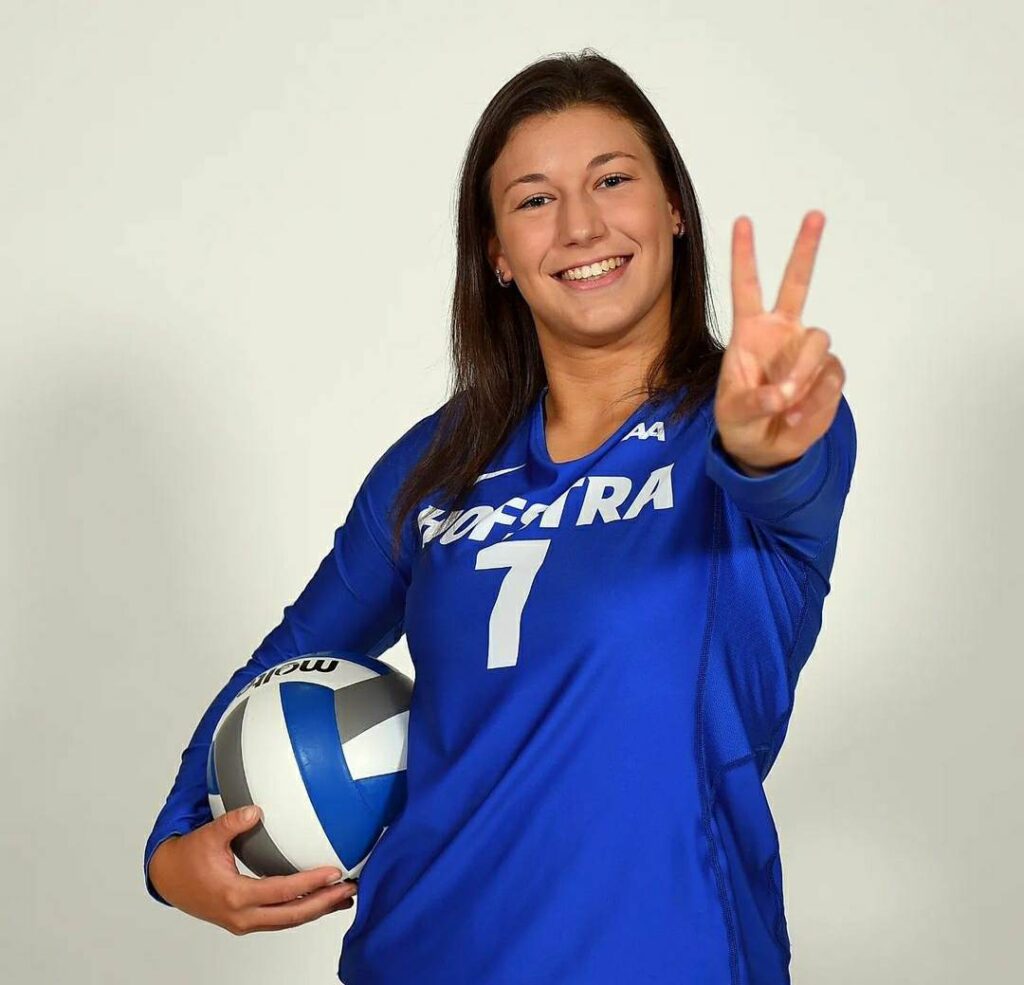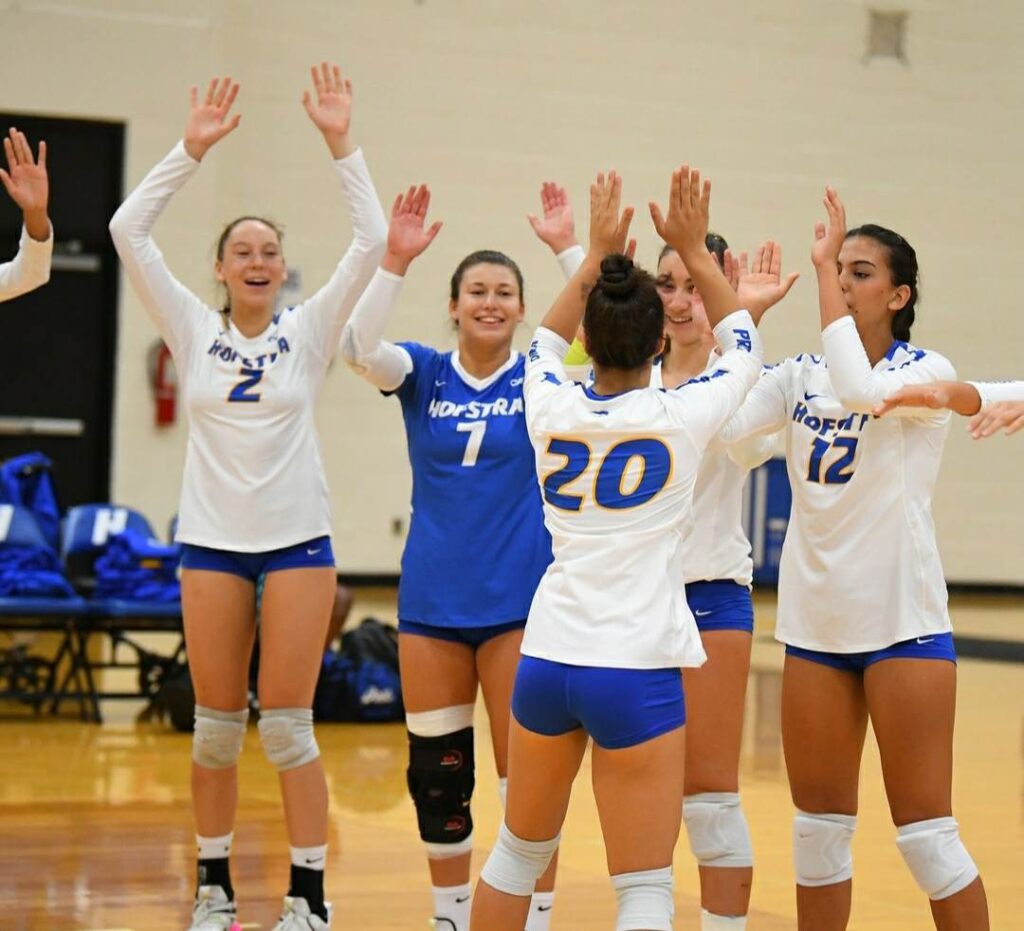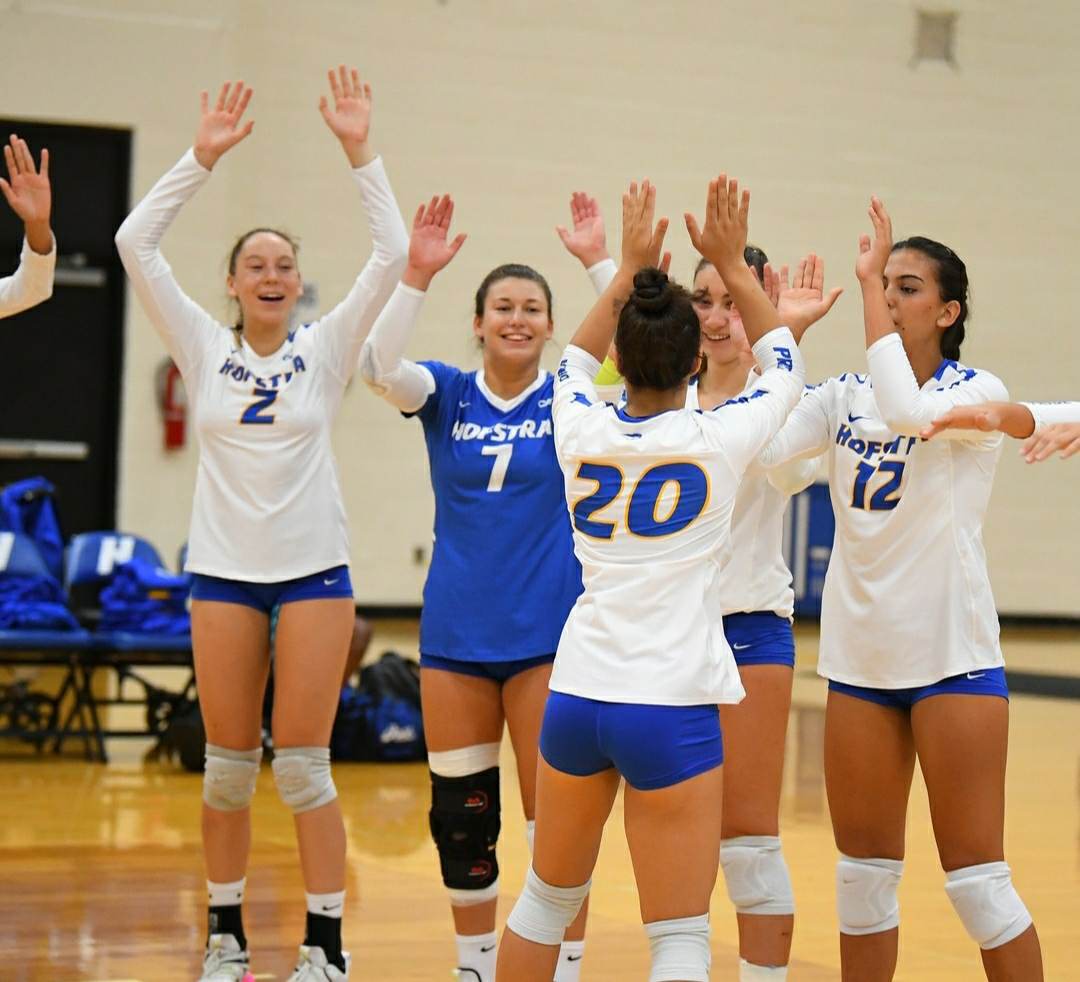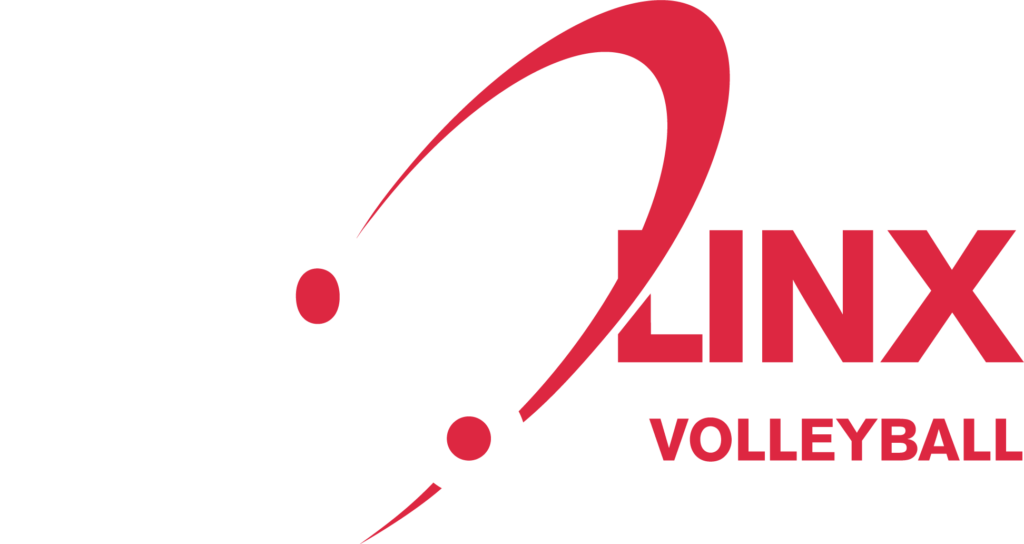The desire to leave and the impact with the United States. The initial fears and the adaptation to a new culture, a new way of life, a new country. The satisfactions on and off the pitch, the study, the daily commitments and the differences with Italy.
We interviewed Chiara Cucco, student-athlete at Hofstra University, who told her story at 360°.

Let’s start with the field. So many awards, so many awards, so many satisfactions. What moment are you living and above all what is the award that has made you most proud so far?
I am very satisfied with all the awards and recognitions that have been given to me. These first two years have been really great from this point of view: they show that I’m doing a good job and that I’m not the only one who notices it. Obviously, however, being extremely competitive, as much as I am grateful for these awards, I aspire to get more and more. Without a doubt, what made me most proud was the “Free of the Year” award obtained this year, in a very difficult year for me because at the beginning of the season I suffered a knee injury that prevented me from expressing my game at my best and forced me to play feeling a lot of pain for about 3 months. The fact that I obtained this recognition despite my not very good physical condition filled me with pride and I felt rewarded for all the efforts made.
The fear of many student-athletes is that of a slow and difficult acclimatization. What has been your impact with the States?
Surely before leaving I had this fear too, I think it’s normal. Personally, I consider myself very lucky because once I arrived in the States I was immediately welcomed in an extraordinary way by my new teammates, coaches and all the people I met. It took me a while to settle in because it’s a completely different reality from what I was used to, but I’ve never been alone and I’ve found people willing to help me with anything I needed. A factor that definitely helped me was the fact that many of my companions were not from the States and therefore understood perfectly what I was going through and how they could help me.

Let’s go back to the field, always talking about impact. How different is American volleyball compared to ours? Let’s talk about training, approach to the race and mentality.
The game is essentially the same, but there are some differences both in terms of the rules of the game and in terms of mentality and approach to the race. First of all, as far as the game is concerned, the fact that the ball can hit the ceiling without the game stopping (something that is still strange to me to be honest) or the fact that the libero has to serve, something that I have never done in Italy and that I had to learn once I got here. In addition, the league is structured very differently, the season lasts only 3 months, from September to November, so everything is organized in a different way. Having such a short season and playing two games every weekend, there is no time to have more than one day off per week and each training session is at least 3 hours, to which you then have to add the time spent on weights and videos before a game. I’ve often been in the gym for 6 or 7 hours in a row. As a result, the physical effort is considerable and you have to learn to play if you are not in the best shape or have small pains, because there is no time to stop.
Another different thing, perhaps the most different of all, is the importance given to relationships within the team and the effort that is made to create a group that is as compact as possible. I really spent a lot of time with my teammates, both on and off the field, doing a lot of different things, which allowed me to get to know all of them better and create deeper friendships. This is very important because, having so many people from all over the world, it would be impossible to develop a good game without first finding common ground and creating bonds between us.
It’s a very different mentality from the one I knew in Italy, here the focus is exclusively on the team, not on the individual, and to be part of it you have to be willing to sacrifice a lot of free time and always put yourself at the service of the team, but in the end it allows you to develop real relationships that go beyond the simple game.
The path as a student-athlete is as exciting as it is difficult. What is your typical day between training and studying?
My typical day varies depending on my schedule and this year has been greatly affected by the injury I suffered. I usually arrive at the gym around 7:00 in the morning, do an hour of therapy or exercises for various injuries or pains, and start training. After training, which ends around 11:00/11:30 we have about 1 hour of weights and then further treatments and therapies. In some cases we also have videos after weights, it depends on the days. I usually leave the gym around 2:00 p.m. and have just enough time to eat something before classes start. I have two or three lessons a day and once I’m done I dedicate myself to studying, homework or, if I’ve completed everything I had to do, just relaxing. This happens almost every day, except on Fridays, when we don’t have classes because we are usually on the road if we play away, and on weekends, where we have a game on Saturday and a Sunday.
What is the thing you miss most about Italy and what is the thing you like the most and what impressed you about the States?
Surely the thing I miss the most about Italy is the food, apart from family and friends of course. It seems trivial, but it’s the truth, Italian food has no equal. As much as I have to admit that the food here is better than I expected, nothing will ever be like a plate of homemade pasta.
One thing that struck me a lot is how much student-athletes are recognized within the university, not only by the people who support us during the games, but by all the students, professors and even the staff who work on campus.
Walking around campus, I have been stopped several times by people I have never seen before who wanted to congratulate me on a victory or an award. This is a very nice thing, it makes me feel very appreciated and also spurs me on to give more and more: I know that when I play I don’t do it only for myself or my teammates, but also for all the people who support us and I have the duty to represent my university in the best possible way.
We close this interview with your point of view on this experience. What has this adventure given you so far from a human, sporting and academic point of view?
This experience has taught me and is teaching me a lot from every point of view. From a sporting point of view, as I said, I had to adapt to a new type of game and above all to a different mentality. From an academic point of view, it was certainly an important step, because I had to go to university and I had to do it in a different language, in a different country and in a completely different system.
I think, though, that the biggest growth for me has been from a human point of view. This experience is making me grow a lot as a person, I had to learn to take care of myself, to relate to people from all over the world, to take my responsibilities.
Especially this year, when I was named captain of the team, I had to learn to listen to others, to take charge of problems and find a solution. All of this has made me grow a lot in a short time and is definitely preparing me for the life that awaits me once I leave university.


